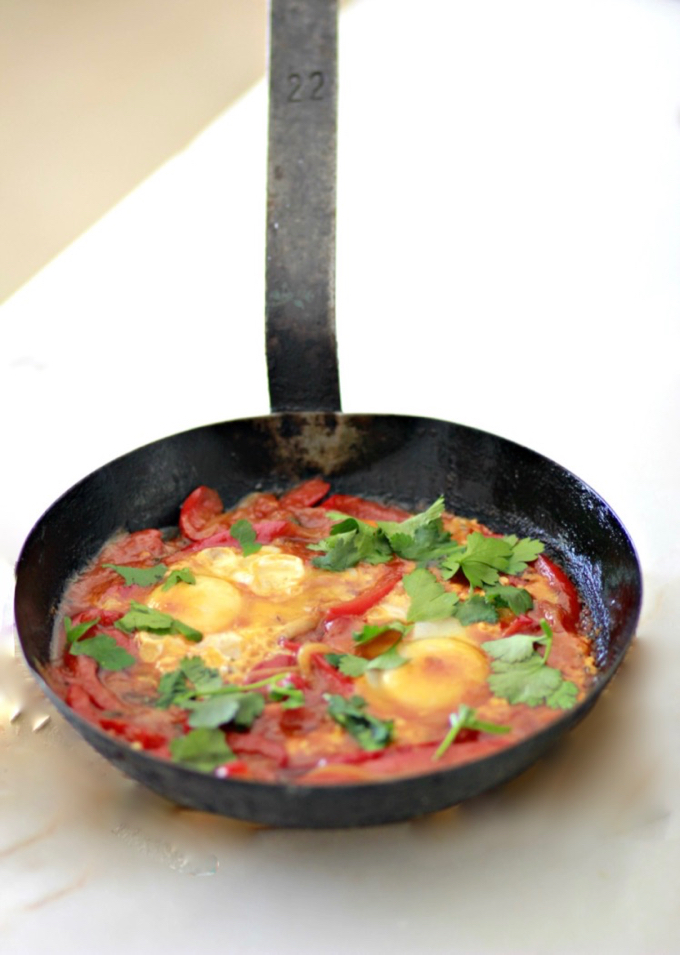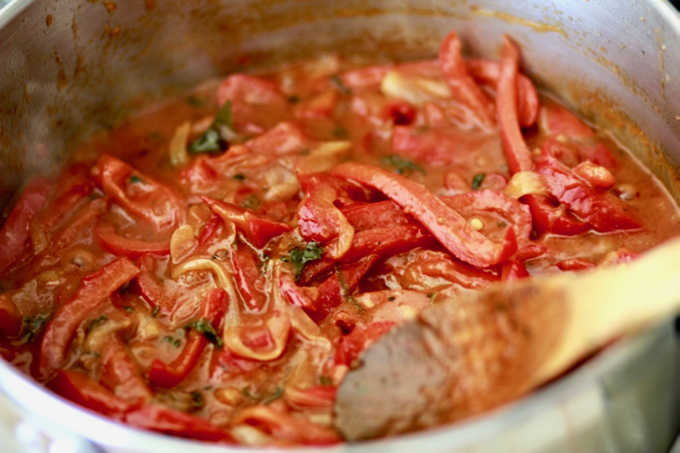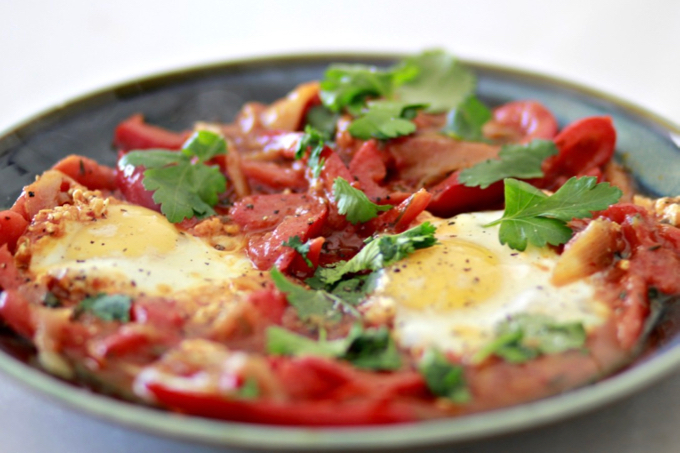
Spices, fresh herbs, summer vegetables and a touch of Middle Eastern tradition on your plate. Today we are so happy to bring you this legendary dish: Shakshuka, the gem of Eastern Mediterranean cuisine. The origin of Shakshuka is… is… unknown? The Quotidian Cooks did our background research and ended up quite bewildered since everyone claims to be its creator: Tunisia, Yemen, Israel, Algeria, Morocco, Libya, Turkey …
Shakshuka is so good, it is so easy to make and it has so much personality that everyone wants to be its creator. To us it is a controversy without interest and it reminds us of other similar ones (mayonnaise, for example). The truth is that the debate reveals the genius of the dish and how it has been developed to perfection over several centuries. Shakshuka is a traditional dish of the Sephardic Cuisine and traveled through the Strait of Gibraltar to the north of Morocco travelling with the successive migrations of the Jewish population through the Mediterranean countries.

The dish has as many versions as nationalities (and cooks!). In Algeria and Morocco it is prepared without eggs, in Tunisia with Merguez, a mild spicy sausage. In Libya with Gideed (cured lamb meat). In Yemen it is served with Zhough, the national green sauce made with cilantro, cardamom and green chiles. In Israel it is cooked very spicy with green peppers and in Turkey the eggs are incorporated scrambled, instead of whole.
Almost everything is possible as long as it starts with a base of peppers, tomatoes, spices and fresh aromatic herbs. Shakshouka is usually served in individual pans and the eggs are cooked in small nests made in the sauce at the very end of the preparation.

Our shakshuka is made with bay leaves, thyme and cilantro, fresh and bright flavors. We bring the dish to the African coasts with cumin seeds and Moroccan Harissa (careful with heat!). A tribute to the intense light of the Southern Mediterranean cuisines.
- 4 eggs
- 2 red peppers (1 Lb) cut into ½ inch strips
- 1 white onion (1/2 Lb) julienned
- 1½ Lb. of crushed tomato, tomato passata or similar
- ½ teaspoon cumin seeds
- 1 bay leaf
- 1 teaspoon fresh thyme
- 1 tablespoon chopped parsley
- 1 tablespoon chopped cilantro
- 1 tablespoon brown sugar or similar
- 1 teaspoon of Harissa or other hot chili (optional)
- salt and pepper
- EVOO Olive oil
- Lightly toast the cumin seeds on the pan
- Add three tablespoons of oil, thyme, bay leaf and julienned onion and sauté until it begins to brown
- Add another three spoons of oil, peppers and brown sugar, and fry for 5 minutes over high heat.
- Add cilantro and parsley to the mixture and combine
- Add tomato, harissa (if used) and cook over low heat until the tomato is done. Watch to keep the mixture moist adding a little water and stirring if necessary. Cook until there is a homogeneous mixture without watery sauce.
- Season with salt and pepper to taste.
- In the same pan, make four holes with a wooden spoon and fry the eggs, each in its nest. To homogenize the cooking point we can cover the pan and leave them to taste.
- Garnish with cilantro leaves











Leave a Reply